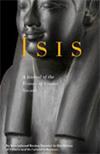管理早期现代采矿中的矿物增长
IF 0.9
2区 哲学
Q2 HISTORY & PHILOSOPHY OF SCIENCE
引用次数: 0
摘要
这篇文章探讨了植物、动物和矿物生长之间的类比——在早期现代欧洲很常见——是如何影响经济思维的。本书首先分析了一篇来自中欧采矿业的学术文本,即撒克逊宫廷历史学家彼得鲁斯·阿尔比努斯的伯格编年史,在两种背景下进行:自然哲学(包括学术和方言)和矿山管理。大自然/上帝提供珍贵和有用的金属被认为是缓慢发生的。中欧日益官僚化的矿山管理助长了对矿物供应的长远看法。本文章由计算机程序翻译,如有差异,请以英文原文为准。
Managing Mineral Growth in Early Modern Mining
This essay explores how the analogy between vegetable, animal, and mineral growth—common in early modern Europe—informed economic thinking. It proceeds by analyzing a scholarly text emerging from Central European mining, the Berg-Chronica of the Saxon court historiographer Petrus Albinus, within two contexts: natural philosophy (both learned and vernacular) and the management of mines. The provision of precious and useful metals by Nature/God was thought to occur slowly. Taking a long view on mineral provision was fostered by the increasingly bureaucratic management of mines in Central Europe.
求助全文
通过发布文献求助,成功后即可免费获取论文全文。
去求助
来源期刊

Isis
管理科学-科学史与科学哲学
CiteScore
1.00
自引率
16.70%
发文量
150
审稿时长
>12 weeks
期刊介绍:
Since its inception in 1912, Isis has featured scholarly articles, research notes, and commentary on the history of science, medicine, and technology and their cultural influences. Review essays and book reviews on new contributions to the discipline are also included. An official publication of the History of Science Society, Isis is the oldest English-language journal in the field.
The Press, along with the journal’s editorial office in Starkville, MS, would like to acknowledge the following supporters: Mississippi State University, its College of Arts and Sciences and History Department, and the Consortium for the History of Science, Technology, and Medicine.
 求助内容:
求助内容: 应助结果提醒方式:
应助结果提醒方式:


